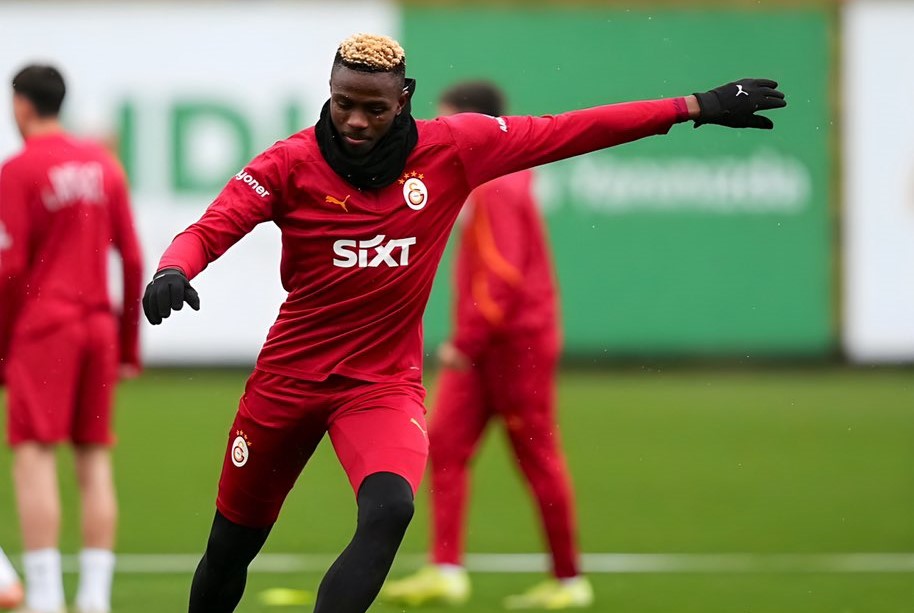Navigating the Crossroads: Victor Osimhen’s Career Conundrum
Victor Osimhen, the prodigious Nigerian striker, stands at a critical juncture in his career, his future shrouded in uncertainty amidst a whirlwind of transfer speculation. His remarkable goal-scoring prowess, demonstrated by his 37 goals in 41 appearances during his loan spell at Galatasaray, has catapulted him into the spotlight, attracting covetous glances from Europe’s elite clubs. Yet, his path forward is fraught with complexities, a delicate balancing act between lucrative offers and the pursuit of sporting ambition.
Former Super Eagles midfielder, Christian Obodo, has stepped forward to offer his seasoned perspective, advising Osimhen to tread cautiously as he navigates this crucial phase. Obodo’s words carry the weight of experience, echoing the sentiment of a footballing fraternity that has witnessed both the triumphs and pitfalls of navigating the intricate world of transfers. He acknowledges Osimhen’s burning desire to continue gracing the grand stages of European football, to chase the elusive trophies and etch his name into the annals of the game’s history. However, he also recognizes the stark realities of the marketplace, the financial intricacies that often dictate the trajectory of a player’s career.
Obodo points to the formidable obstacles that stand in Osimhen’s path, the hefty release clause and substantial wage demands that have become stumbling blocks for potential suitors. The financial burden, he argues, has deterred even the wealthiest of European clubs, instilling a sense of caution that has slowed the pace of negotiations. Clubs are wary of committing to exorbitant deals that could potentially backfire, leaving them burdened with financial regrets. This hesitancy has created an impasse, a stalemate that Osimhen must carefully navigate.
Furthermore, Obodo sheds light on a pervasive issue that has long plagued Nigerian footballers: the persistent undervaluation of their talent compared to their South American counterparts. He laments the way Nigerian players are perceived, often overlooked or dismissed due to biases and misconceptions that have taken root within the footballing world. This disparity, he asserts, is a disservice to the immense talent that Nigeria possesses, a missed opportunity for European clubs to tap into a rich vein of footballing prowess. Had Osimhen been Brazilian, Obodo argues, his transfer would have been swiftly secured, a testament to the ingrained biases that favor South American players.
Obodo’s critique extends to the way Nigerians themselves portray their countrymen, often resorting to criticism and negativity that undermines the players’ potential and hinders their progress. He calls for a change in this narrative, urging Nigerians to embrace a more supportive and encouraging stance, to become ambassadors for their own talent rather than detractors. This shift in perspective, he believes, is crucial for elevating the status of Nigerian footballers on the global stage.
Turning his attention back to Osimhen’s predicament, Obodo urges the young striker to carefully weigh his options, to consider the long-term implications of each potential move. He presents Osimhen with a stark choice: to compromise on his financial demands and remain in the competitive landscape of European football or to succumb to the allure of a lucrative contract with Al Hilal in the Saudi Pro League. The decision, he emphasizes, rests solely with Osimhen, a weighty responsibility that demands careful consideration and a clear vision for the future. Obodo concludes with a heartfelt plea, urging the footballing community to rally behind Osimhen, to offer support and guidance as he embarks on this crucial decision-making process. The hope, he expresses, is that Osimhen will make the choice that best aligns with his aspirations and sets him on a path to fulfilling his immense potential.














